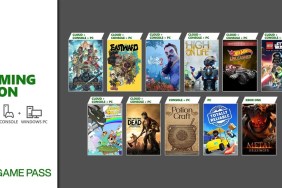After a brief revival on current generation platforms, both Marvel Ultimate Alliance games have been sent to the Soul Stone dimension. Activision has delisted both Marvel Ultimate Alliance games from the Xbox Live Marketplace, PSN, and Steam. Although the publisher has not released a statement, this is likely because of an expiring licensing agreement since both games were re-released exactly two years ago today.
Marvel Ultimate Alliance originally came out in 2006 and its sequel was released in 2009. Both were remastered for the PS4, Xbox One, and PC in 2016. Although “remaster” maybe be a bit of a stretch since a multitude of issues plagued their relaunch.
Rampant glitches, missing achievements, horrendous optimization on PC, and more made these games hard to swallow. This was especially jarring given the shocking $40 price point per title (both were bundled together for $60). Patches (along with free DLC) eventually fixed some of the issues but the damage had already been done.
This is not the first time Marvel games have been delisted. In fact, it’s quite common. The first three Marvel vs. Capcom games have all been taken off digital storefronts at some point. It’s partly why Ultimate Marvel vs. Capcom 3 was re-released on PS4 and Xbox One in late 2016 and early 2017, respectively. It’s the only Marvel vs. Capcom (besides Infinite) currently available to purchase digitally.
The Deadpool game was even delisted two separate times. Its original release on PS3, Xbox 360, and PC went off sale digitally in January 2014, which was only six months after it release. It was then ported to PS4 and Xbox One in 2015 to coincide with the Deadpool film from February 2016. The game got taken off again late last year.
Marvel licenses must be tricky to work with, given that they seem to be limited by restrictive licensing. Of course, people who already own these games can still access them but it limits the audience if the digital versions are constantly being removed. It’s unclear if Insomniac Games’ Spider-Man will suffer a similar fate but, given that Sony owns the rights for the web slinger, it’s not as likely.












